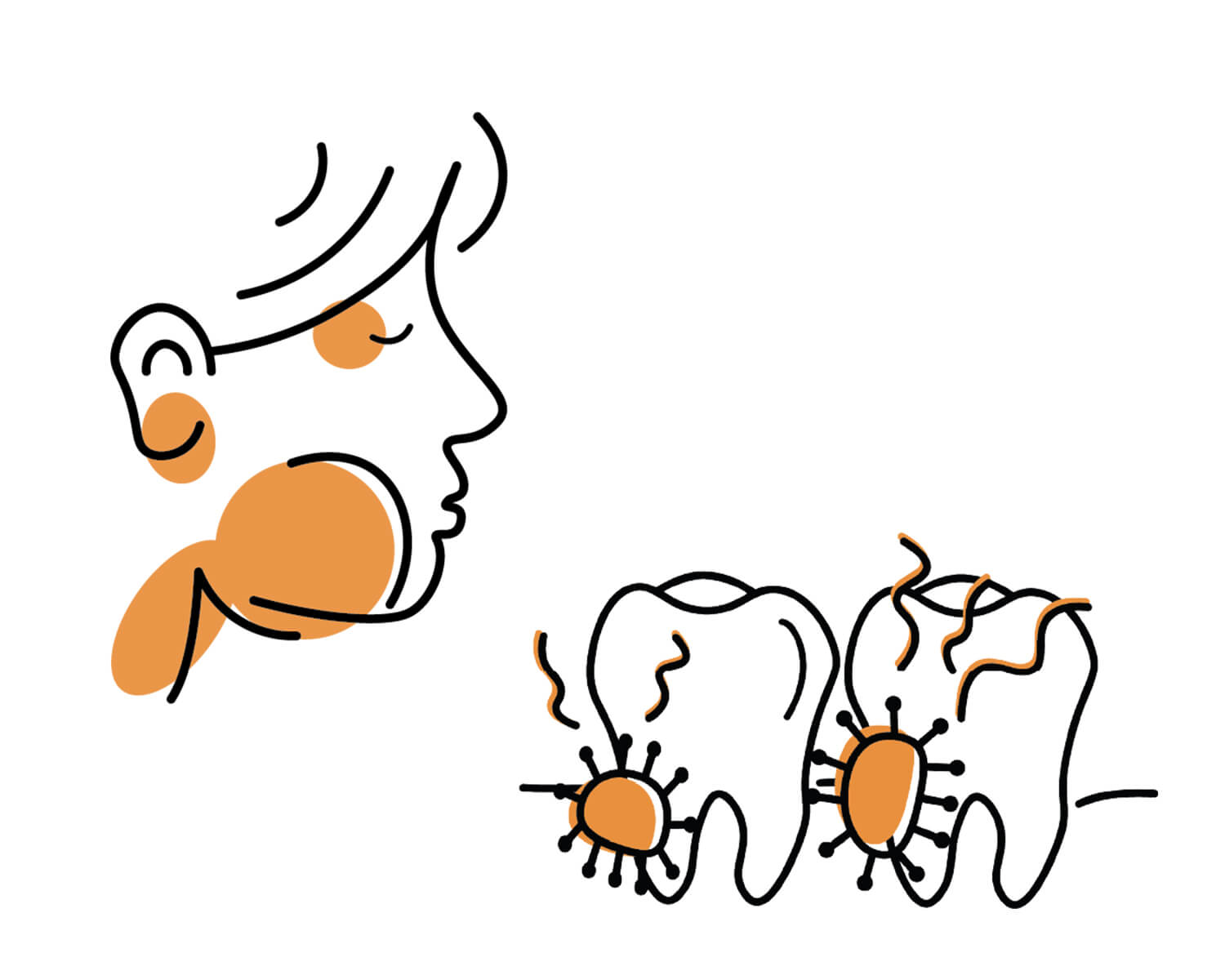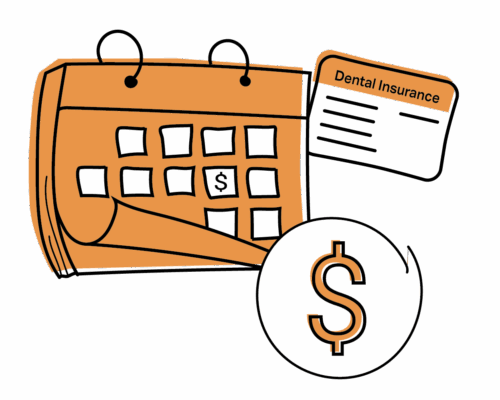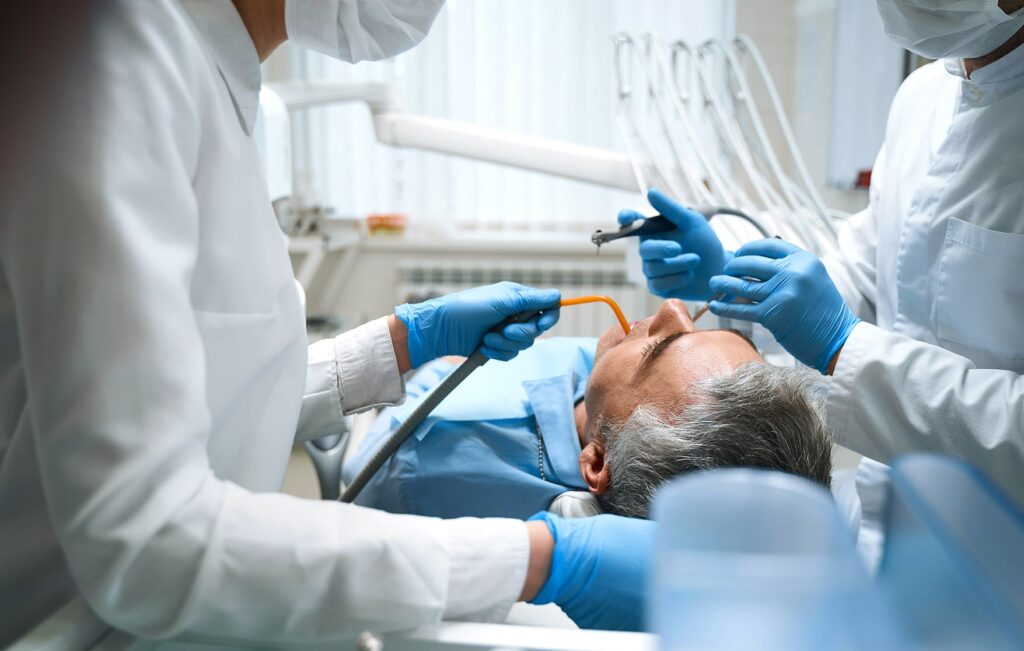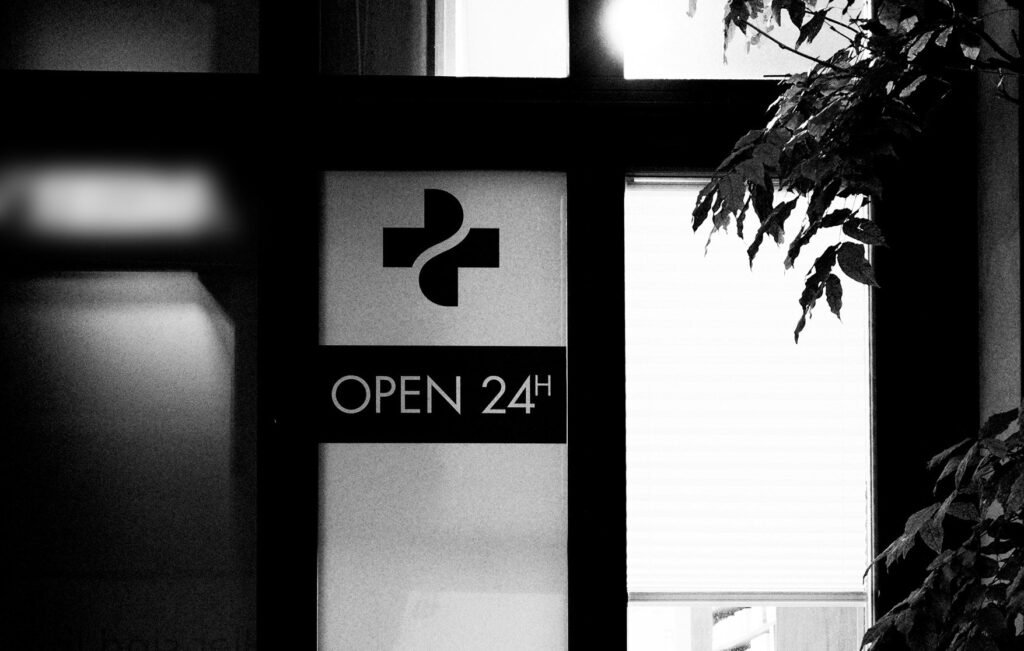Tooth Infection Emergency Care:
An In-Depth Guide
A tooth infection, also called a dental abscess, is more than just a toothache. Severe pain, swelling, and fever are signs that bacteria have spread, and without quick tooth abscess treatment, the infection can worsen and even threaten your overall health. This guide explains the symptoms of an infected tooth, urgent care options, and how dentists can provide fast relief.

Reviewed By Dr. Dennis Rollins, DDO | July 2025 • 6 min Read

When Treatment for Infected Teeth May Be Required
Persistent Pain
Severe throbbing ache that disrupts sleep and daily life.
Facial Swelling
Puffy cheeks, jaw, or neck, showing the spread of bacteria.
Fever and Fatigue
Your body feels unwell while fighting a serious infection.
Tooth Sensitivity
Pain experienced when chewing or drinking hot or cold.
Gum Abscess
A pimple-like bump or discharge of pus near the tooth.
Airway Danger
Trouble swallowing or breathing requires an immediate ER visit.
What to Expect During a Dental Visit for a Tooth Infection
Evaluation
Your dentist reviews symptoms and X-rays to confirm infection.

Treatment
The abscess is drained, followed by a root canal or extraction.

Healing and Relief
Antibiotics are prescribed, and a crown is placed to protect the tooth.

Why You Shouldn’t Wait
A tooth infection won’t go away on its own. Even if pain eases for a moment, the bacteria remain active and can spread to your jaw, sinuses, or bloodstream. This puts you at risk for sepsis, a life-threatening condition. Oral infections don’t just affect your teeth; they are linked to whole-body health issues like heart disease, diabetes, and even Alzheimer’s disease. Acting quickly also protects your tooth: dentists can often save it with a root canal, if it’s caught early. If you notice swelling, fever, or difficulty opening your mouth, don’t delay. Emergency treatment brings fast relief and safeguards your long-term health.
Costs, Insurance, and Payment Options
Most dental offices accept insurance, but coverage varies depending on whether the care is emergency or routine. Even without insurance, you have choices: many dentists provide transparent estimates, cash discounts, or flexible financing so you’re not left guessing. Treating a tooth infection early is usually less expensive than waiting. A root canal and crown can preserve your tooth for years, but ignoring the problem may mean hospital bills for IV antibiotics or surgery. When you call, let the office know your insurance status or payment preference, so they can walk you through options while you focus on feeling better.

ER or Dentist? Making the Right Choice
Not every infection requires an ER visit. Call or visit an emergency dentist if you have localized tooth pain, gum swelling, or sensitivity. Go to the ER immediately if you have severe facial swelling, a fever above 101°F, or any trouble swallowing or breathing. Those signs indicate the infection is spreading and could block your airway. If you’re unsure, call a 24-hour dentist and describe your symptoms clearly, including the level of pain, swelling, and fever. They can help you decide whether to come straight to the dental office or head to the hospital.
How to Manage Tooth Infection Pain While Waiting
Before your appointment, try these safe steps to ease the pain: rinse gently with warm saltwater to reduce bacteria, hold a cold compress on your cheek to limit swelling, and take ibuprofen or acetaminophen as directed. Stick to soft foods and avoid chewing on the infected side. Skip alcohol, smoking, and sugary drinks, which can worsen infection. These tactics won’t cure the abscess, but they can help you manage discomfort until professional care is available. Relief from pressure often comes quickly, once the abscess is drained and the source of infection is treated.

Spotting and Preventing Complications
Ignoring a tooth infection can have serious consequences. Infections that spread beyond the tooth can cause jawbone damage, sinus involvement, or systemic infection (sepsis). After treatment, watch for new or worsening swelling, fever, or pain. In the long term, prevention is straightforward: brush and floss daily, visit your dentist regularly, and don’t ignore cavities or cracked teeth. Maintaining good oral hygiene doesn’t just protect your smile; it also reduces your risk of chronic conditions like heart disease and diabetes that have been linked to untreated oral infections. Treating infections early is always safer—and far less painful—than waiting.

Ask A Dentist: Dr. Dennis Rollins:
When is a tooth extraction an emergency and when it can wait?
Class aptent taciti sociosqu ad litora torquent per conubia nostra, per inceptos himenaeos. In hac habitasse platea dictumst. Aenean dignissim, nibh sed iaculis hendrerit, velit risus rhoncus massa, in dictum nulla lectus ac eros. Phasellus laoreet mauris turpis, eget varius nisl tempor nec. Fusce eget ante mattis diam blandit cursus. Vivamus dignissim est sit amet tellus venenatis varius.
Nunc blandit libero sit amet odio ornare, eget suscipit lacus blandit. Quisque bibendum laoreet convallis. Vestibulum vestibulum posuere risus at scelerisque. Vestibulum ante ipsum primis in faucibus orci luctus et ultrices posuere cubilia curae; Mauris sed sapien bibendum, maximus eros ut, volutpat erat.

Find Emergency Tooth Infection Care Near You
Get urgent relief from tooth infection pain.
Call now to book a same-day appointment with an emergency dentist near you.
Get urgent relief from tooth infection pain. Call now to book a same-day appointment with an emergency dentist near you.
Frequently Asked Questions
What’s the best emergency action plan for a tooth infection?
If you’re in severe pain and aren’t sure what to do, use this step-by-step plan for quick relief:
- Call 911 Immediately: If swelling makes it hard to breathe or swallow, or if you have a high fever with chills.
- Go to the ER: If your face or neck swelling is spreading quickly.
- Call an Emergency Dentist: For intense pain, pus discharge, or swelling limited to the gums or cheek.
- While You Wait: Rinse with warm saltwater, use a cold compress, and take ibuprofen or acetaminophen as directed.
What should I say when I call the emergency dentist?
Knowing what to share helps the dentist act quickly. Be ready to mention the following to give your dentist a clear picture of the situation so that they can prepare for fast, effective treatment:
- When the pain started, and whether it’s getting worse.
- Pain level on a 1–10 scale to show severity.
- Any swelling, fever, or difficulty swallowing you’re experiencing.
- What medicines you’ve taken, including painkillers or antibiotics.
- Your insurance or payment details.
Can a tooth infection heal on its own?
No. An abscess will not disappear without dental treatment. Even if the pain improves and the infection drains, it remains active and is likely to return.
What’s the best painkiller for infected tooth symptoms?
Anti-inflammatory medications like ibuprofen are most effective for reducing pain and swelling. Acetaminophen can help too, but neither will cure the infection.
How do I know if my infection is spreading?
Watch for swelling in your face or neck, fever, rapid heartbeat, or difficulty breathing. These are emergency signs that call for immediate hospital care.
Should I go to the ER or a dentist?
Go to a dentist for pain, gum swelling, and ongoing care. Head to the ER without delay if you develop fever, facial swelling, or trouble breathing.
What happens if I don’t get tooth abscess treatment?
Infection can spread to the jawbone, bloodstream, or brain, causing sepsis, a life-threatening condition. Always treat abscesses quickly.
Do antibiotics cure tooth abscesses?
No. Antibiotics can calm the infection, but they don’t eliminate its source. A root canal or extraction is still necessary.
Is a tooth abscess always painful?
Usually, yes, but if the tooth’s nerve dies, pain may fade temporarily. That doesn’t mean the infection is gone; urgent care is still needed.
What does an abscess look like?
It may appear as a swollen, red bump or pimple on the gum near the affected tooth.
Can I use salt water to cure the infection?
Saltwater rinses soothe gums and wash away bacteria, but they can’t cure a tooth abscess. Only treatment by a dentist can.
How can I prevent future tooth infections?
Brush your teeth twice daily, floss daily, and visit your dentist for regular cleanings. Treat cavities and cracked teeth early to stop infection before it starts.



